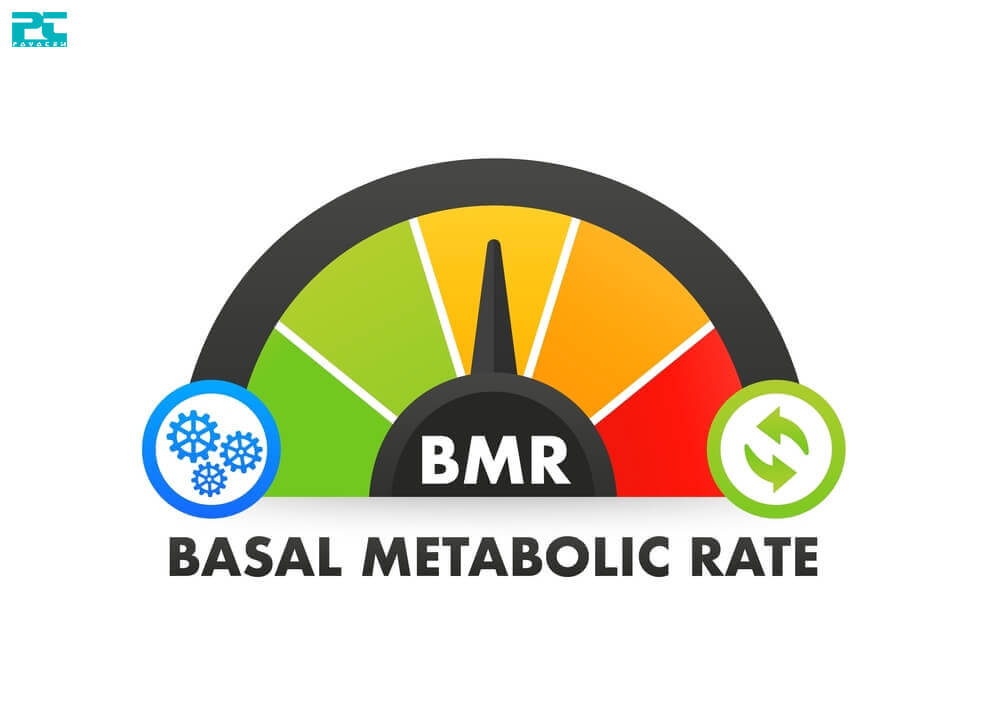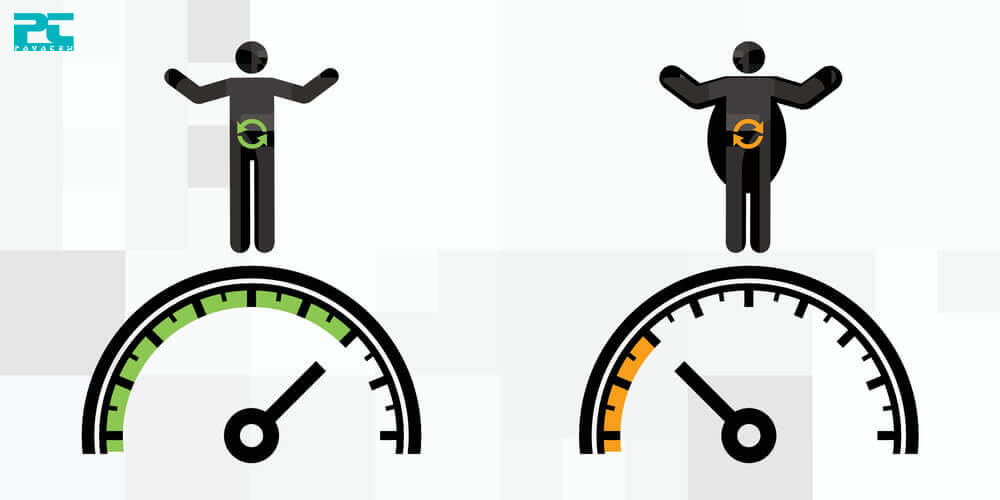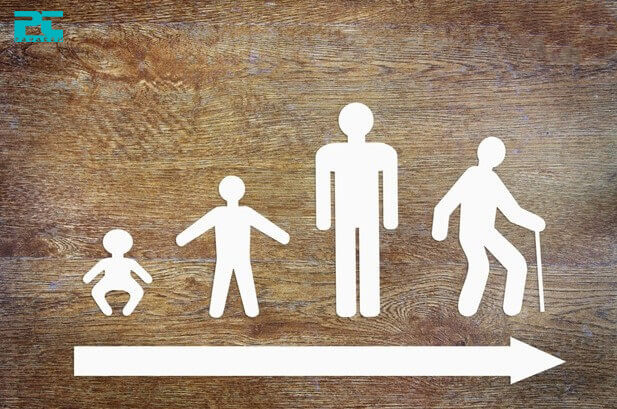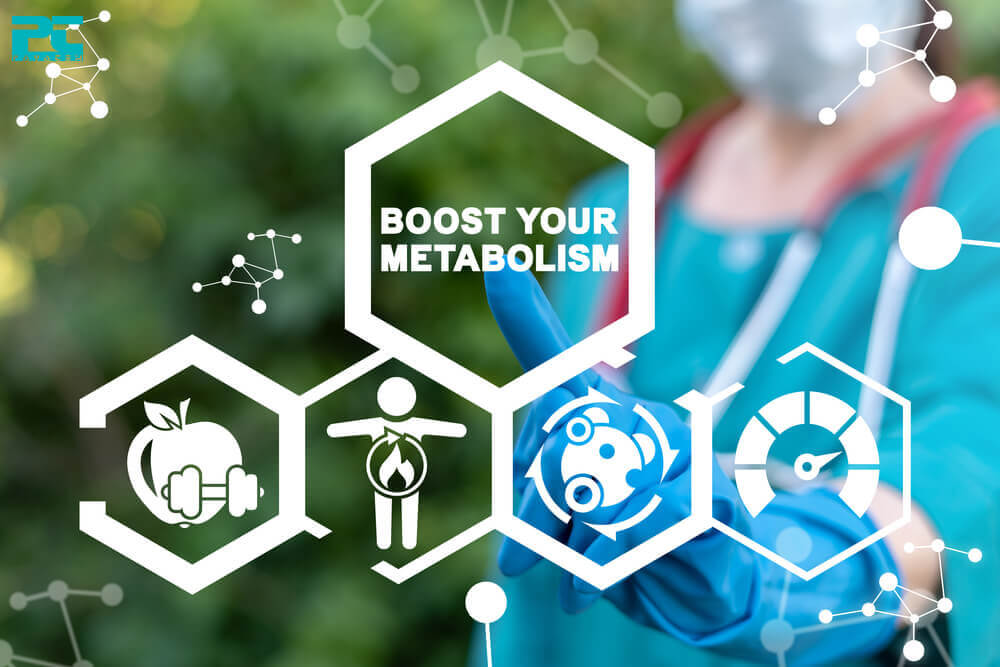Metabolism is a series of chemical reactions that occur in your body and control how your body creates and uses energy. It is the process by which the body changes food and drink into energy. During this process, calories in food and drinks mix with oxygen to provide the energy the body needs. Your basal metabolic rate (BMR) can be used to help you gain, lose, or maintain your weight. There are multiple ways
to calculate your BMR.
How to Measure Your Metabolic Rate
It is quite difficult to get an exact metabolic rate since so many variables, such as age, food, activity, and temperature, can influence the findings. Among the various methods that exist to calculate the rate of metabolism, one of the best ways to get an accurate reading is by using equipment that measures your basal metabolism rate by analyzing the three-dimensional model of your body. PT-3DFit provides 3D scanning of the body’s external surfaces with optical technology with no contact (non-invasive). Today, the general public has access to a number of handheld gadgets, although they can be expensive and imprecise.

The main task of metabolism
Your metabolism performs three main functions: converting food into energy, breaking down food into its fundamental components such as proteins, lipids, nucleic acids, and specific carbohydrates, and eliminating nitrogen waste. Metabolism operates continuously, even during periods of rest. Additionally, metabolism encompasses other essential tasks such as:
- Respiration
- Cell growth and repair
- Hormone level regulation
- Body temperature regulation
- Blood circulation
- These interconnected processes collectively maintain the body’s functions and energy balance.
Balancing the Body’s Energy: Understanding Catabolism and Anabolis
Metabolism is a multifaceted process meticulously regulated by the body to maintain equilibrium. It consists of two primary components:
Catabolism: This process involves the breakdown of proteins, fats, or tissues into smaller components, such as cells or fatty acids. Catabolism is particularly active during food digestion, where substances like bread are broken down into glucose.
Anabolism: In contrast, anabolism is the process by which smaller components like nutrients, cells, or amino acids are combined to form larger structures. For example, when your body mends a wound, it engages in anabolism to create new tissue and structures around the injury.

Metabolism Rate
The three parts of your body’s metabolic rate (or overall energy expenditure) are as follows:
Basal metabolic rate: The majority of your daily energy usage (between 50 and 80 percent) comes from the body’s BMR.
Energy used during physical activity: As you eat and drink, your body expends energy to breakdown them while simultaneously absorbing, transporting, and storing the nutrients they contain. The majority of your energy usage (5–10%) comes from thermogenesis.
Energy expended during physical activity: This component represents approximately 20% of our daily energy usage based on a person who is moderately active.

Fast Metabolism vs. Slow Metabolism
How simple or difficult it is for individuals to gain or lose weight suggests differences in metabolic rates. Some people find it difficult to lose weight just by limiting calories because they have a slow metabolism, which causes fewer calories to be burned and more calories to be stored as fat in their bodies. Some people can eat a lot without gaining weight because their bodies can burn calories quickly as they have a fast metabolism. This helps to explain why some people can eat a lot without gaining weight.

4 life stages of metabolism
Infancy: At the time in our lives when our metabolisms are by far the busiest, infants consume up to 50% more calories than adults do on average when body weight is considered.
Adolescence: Calorie Burn Declines Despite the many physical changes that occur during puberty, our bodies cannot maintain the extreme calorie burning of infancy, and our metabolisms slow by about 3% annually.
Adulthood: It then reaches a plateau. This plateau holds steady for a lot longer than we expected. Only when we reach our 60s does it start to fall even more (0.7% annually). So, the midlife gut that many people struggle with is not caused by a metabolism that is naturally slowing down.
Advanced age: After reaching a plateau, the metabolism slows down even more. A 90-year-old needs fewer calories than a 30-year-old does. Without regard to the loss of muscle mass, the energy metabolism in our cells develops flaws and slows down.

Boosters
You can naturally boost your metabolism by modifying your diet, sleep, and exercise habits. The following are evidence-based strategies for a natural metabolism boost.
- Engage in high-intensity exercise: Like running, swimming, and cycling, ….
- Do strength training: such as resistance bands or lifting weights
- Drink enough water: Water aids in increasing metabolism, detoxifying the body of waste, and controlling appetite.
- Eat at regular times: The body relies on balance and regularity.
- Eat spicy foods: spices such as chili contain the chemical capsaicin, which gives these vegetables their heat. Capsaicin increases your body’s internal temperature which temporarily helps you burn more calories.
- Drink green tea: Regular consumption of green tea can boost your metabolism. Some research suggested that two components in this tea caffeine and catechins may increase metabolic function.
- Drink caffeine: Caffeine increases your resting metabolic rate, which means it increases the number of calories you burn at rest.
- Avoid crash diets: Crash diets focusing on severe food restrictions can prevent your body from getting the nutrients it needs. Studies have found that these diets’ results often don’t last. Aim to eat a variety of foods that provide sufficient calories and essential vitamins and minerals
- Reduce stress: Manage your stress through practicing stress reduction techniques such as breathing exercises, meditation, hot baths, yoga, gentle exercise, and stretching.
- Get enough sleep: lack of sleep can lead to imbalance and dysregulation of the hormones associated with hunger and appetite. The need for sleep varies between individuals, but the Centers for Disease Control and Prevention (CDC) recommends that adults aged 18–60 should have at least 7 hours per night.

Conclusion:
In conclusion, metabolism is a vital process that controls how the body creates and uses energy. It involves a series of chemical reactions that convert food and drinks into the energy the body needs to function. Metabolism encompasses essential functions such as respiration, cell growth and repair, hormone regulation, body temperature control, and blood circulation, all of which are interconnected to maintain overall bodily functions and energy balance.
Metabolism consists of two main components: catabolism, which breaks down substances like proteins and fats into smaller components, and anabolism, which builds larger structures from smaller components, such as tissue repair. These processes collectively ensure the body’s energy needs are met.
The metabolic rate, which includes basal metabolic rate (BMR), energy expended during digestion, and energy expended during physical activity, varies between individuals. This rate affects how easily individuals gain or lose weight, with fast metabolism burning calories quickly and slow metabolism storing more calories as fat.
Metabolism undergoes four life stages, changing calorie needs throughout infancy, adolescence, adulthood, and advanced age. Understanding these stages can help individuals make informed dietary and lifestyle choices.
To naturally boost metabolism, individuals can engage in high-intensity exercise, strength training, maintain regular meal times, consume spicy foods, and stay hydrated. Additionally, green tea, caffeine, and stress reduction techniques can aid in increasing metabolic function. Adequate sleep is also crucial for regulating hunger and appetite hormones. Overall, metabolism plays a crucial role in maintaining the body’s energy balance and overall health, making it essential to understand and support its functions through healthy lifestyle choices.

 فارسی
فارسی